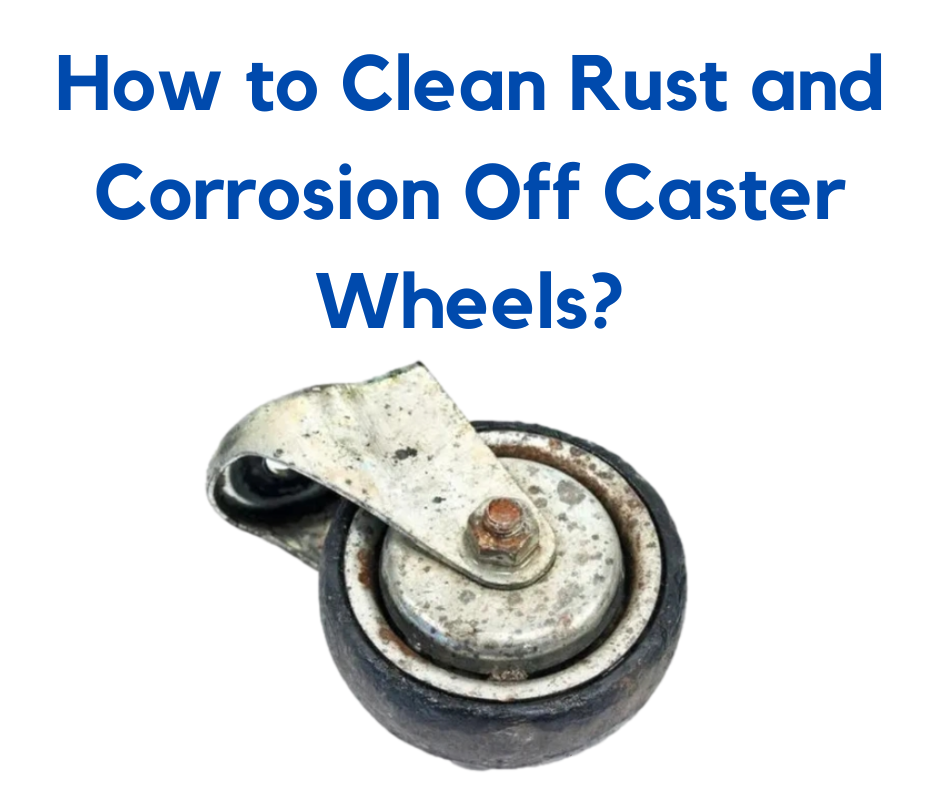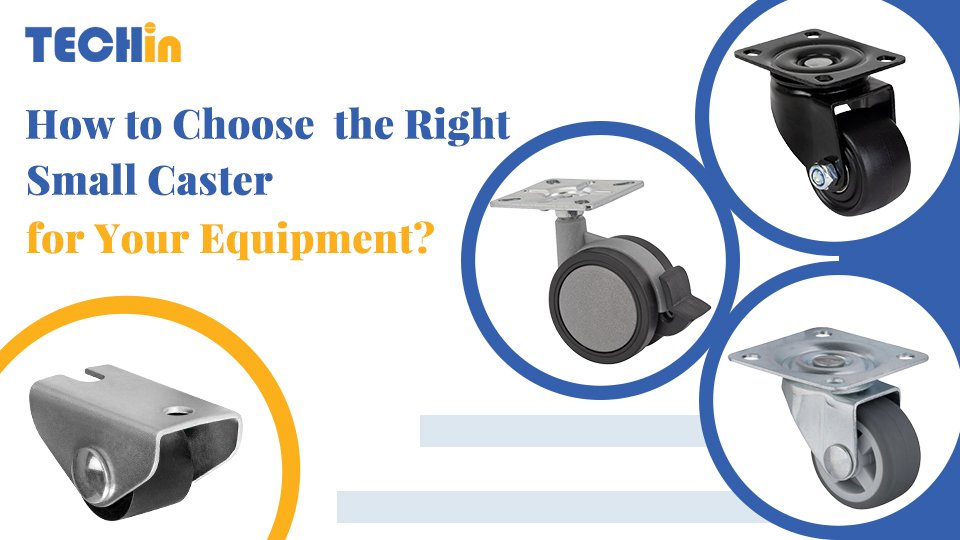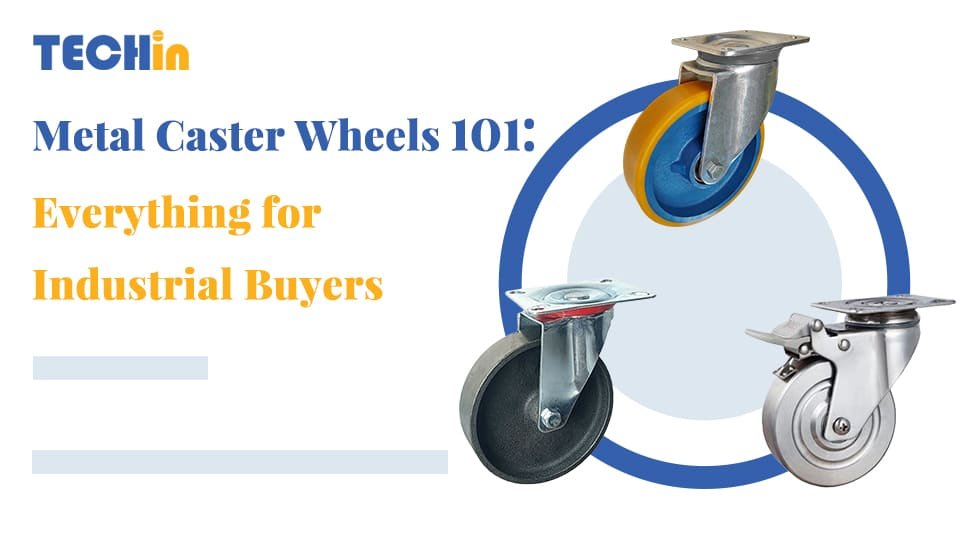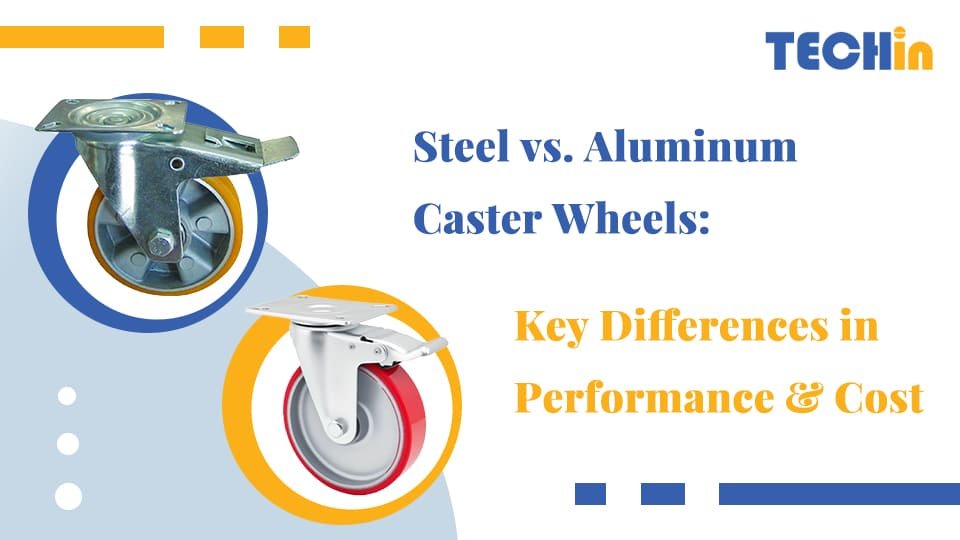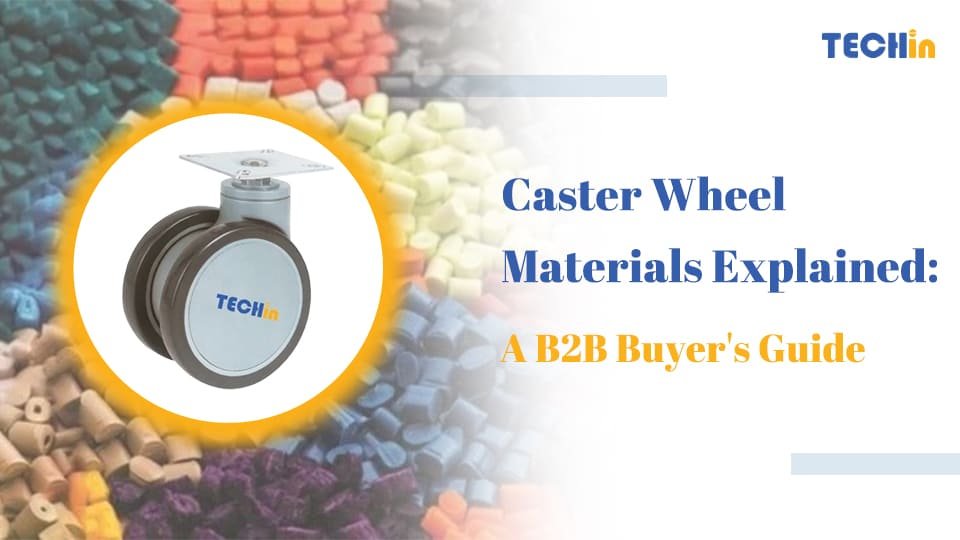Caster wheels are essential components for many pieces of equipment, from office chairs to industrial machines. Over time, rust and corrosion can accumulate, causing them to function poorly and potentially leading to damage. In this guide, we’ll explore effective methods to clean and restore your caster wheels, ensuring they roll smoothly once again.
To clean rust and corrosion off caster wheels, start by wiping down the wheels with a rag to remove loose debris. Submerge the wheels in warm, soapy water to loosen grime. Use fine 0000 wire wool to scrub the rust, and if necessary, soak in white vinegar for several hours. Rinse and dry thoroughly.
Let’s dive deeper into each step to ensure your caster wheels are thoroughly cleaned and restored.
How to Clean Rusty Castor Wheels?
- Preparation:
- Gather your cleaning supplies: rags, a bucket, warm soapy water, fine 0000 wire wool, and gloves to protect your hands.
- Make sure you are in a well-ventilated area or outdoors to avoid inhaling any fumes from cleaning agents.
- Lay down a plastic sheet or old newspaper to catch any debris and protect your work surface.
- Initial Cleaning:
- Wipe the wheels with a rag to remove loose dirt and debris. This step helps prevent the dirt from scratching the wheels during the scrubbing process.
- Inspect the wheels for any visible damage. If the rust has caused severe damage, you might need to consider replacing the wheels.
- Soaking:
- Fill a bucket with warm, soapy water. Use a mild dish detergent to create a sudsy solution.
- Soak the wheels in the bucket for about 10-15 minutes. The warm water helps to loosen any grime and makes the rust easier to remove.
- For heavily rusted wheels, you may need to soak them longer or repeat the soaking process.
- Scrubbing:
- Use fine 0000 wire wool to scrub the rust from the wheels. Apply gentle pressure and use circular motions to avoid scratching the wheels.
- If rust persists, keep the wheels in the solution for a longer period, scrubbing intermittently.
- For hard-to-reach areas, use a toothbrush or a small brush to scrub away the rust.
- Rinsing:
- Rinse the wheels thoroughly with clean water to remove any soap residue and loosened rust particles.
- Make sure to rinse off all the soap, as leftover soap can attract more dirt and grime.
- Drying:
- Dry the wheels completely with a clean cloth to prevent new rust from forming. Pay special attention to crevices and hidden areas.
- Leave the wheels to air dry for a few hours or use a hairdryer to speed up the drying process.
Does Vinegar Remove Rust and Corrosion?
- Why Vinegar Works:
- Vinegar contains acetic acid, which reacts with rust to dissolve it. This makes it an effective and natural rust remover.
- Vinegar is a safe, eco-friendly alternative to harsh chemical rust removers.
- Submerging:
- Submerge the rusty wheels or tools in a bowl of white vinegar and let them sit overnight or as long as 24 hours for severe corrosion.
- For larger wheels, use a large plastic container or a bathtub to submerge the wheels in vinegar.
- Scrubbing:
- After soaking, use steel wool, a scouring pad, or a wire brush to scrub off the rust. The rust should come off easily after being loosened by the vinegar.
- Be patient and gentle while scrubbing to avoid damaging the wheels.
- Rinsing and Drying:
- Rinse the wheels thoroughly with water to remove any vinegar residue.
- Dry the wheels completely to prevent further rusting. Use a clean cloth and allow the wheels to air dry.
What’s the Best Thing to Get Rust Off Wheels?
- The White Vinegar Method:
- Use 12 ounces of white vinegar, a spray bottle, fine-grade steel wool, and a cloth.
- Spray the vinegar over the rusted areas, ensuring the entire rusted segment is covered.
- Allow the vinegar to sit for a few minutes, then scrub with fine-grade steel wool.
- Wipe clean with a cloth and repeat as necessary until the rust is completely removed.
- Using Lemon Juice and Baking Soda:
- Mix lemon juice with baking soda to create a paste. The acidity of the lemon juice and the abrasiveness of the baking soda work together to remove rust.
- Apply the paste to the rusted areas and let it sit for 30 minutes.
- Scrub the paste off with a brush or steel wool.
- Rinse and dry the wheels thoroughly.
- Commercial Rust Removers:
- There are many commercial rust removers available that are specifically designed to remove rust from metal surfaces.
- Follow the instructions on the product label for the best results.
- Always wear gloves and work in a well-ventilated area when using chemical rust removers.
How to Clean Caster Wheels?
- Dismantling:
- If possible, dismantle the caster wheels to access all parts, including the wheel bearings.
- Take note of how the wheels are assembled to make reassembly easier.
- Cleaning Bearings:
- Use a brush and a suitable solvent (like rubbing alcohol) to clean the wheel bearings. Bearings can accumulate dirt and debris over time, which can affect the wheels’ performance.
- Dry the bearings completely before reassembling.
- Lubrication:
- After cleaning, apply a small amount of lubricant to the bearings to ensure smooth operation. Use a lubricant that is suitable for metal and plastic components.
- Reassemble the wheels and test their functionality to ensure they roll smoothly.
How to Clean Rubber Caster Wheels?
- Mild Detergent:
- Use a mild detergent and warm water to clean rubber wheels. Harsh chemicals can damage the rubber.
- Mix a small amount of detergent with warm water to create a cleaning solution.
- Scrubbing:
- Scrub the wheels with a soft brush to remove any stuck debris. Avoid using abrasive tools that can scratch the rubber.
- For stubborn stains, use a toothbrush to scrub the affected areas.
- Rinsing and Drying:
- Rinse the wheels thoroughly with water to remove any soap residue.
- Allow the wheels to dry completely before reattaching them to your equipment.
How to Clean Office Chair Wheels Hair?
- Removing Hair and Fibers:
- Use a pair of tweezers or a small knife to remove hair and fibers wrapped around the wheels. This is often a common problem with office chairs.
- Be careful not to damage the wheels while removing hair and fibers.
- Cleaning with Soap:
- Clean the wheels with soapy water and a brush to remove any remaining dirt.
- Rinse thoroughly with water to remove any soap residue.
- Drying and Lubrication:
- Dry thoroughly with a clean cloth and allow the wheels to air dry.
- Apply a small amount of lubricant to ensure the wheels roll smoothly.
How to Remove Caster Wheels?
- Threaded vs. Push-fit:
- Determine if the caster wheels are threaded or push-fit.
- Threaded Wheels:
- For threaded wheels, unscrew them counterclockwise. You may need a wrench or pliers for this.
- Apply a bit of lubricant if the wheels are difficult to unscrew.
- Push-fit Wheels:
- For push-fit wheels, pull firmly while wiggling to remove them from the socket. Sometimes, a flathead screwdriver can help pry them out gently.
- Be careful not to damage the socket or the wheels during removal.
How to Remove Casters from Old Furniture?
- Positioning the Furniture:
- Place the furniture on its side to access the caster wheels. Use a cushion or blanket to protect the furniture and floor.
- Have a helper hold the furniture steady if needed.
- Prying Off Casters:
- Use a flathead screwdriver or pry bar to gently lift the casters out of their sockets.
- Insert the screwdriver or pry bar between the caster and the socket, then gently wiggle it to loosen the caster.
- Dealing with Adhesive:
- If the casters are glued, apply a solvent like acetone to loosen the adhesive before removal.
- Apply the solvent with a cloth and allow it to sit for a few minutes before attempting to remove the casters.
Maintenance Tips to Prevent Rust and Corrosion
- Regular Cleaning:
- Clean caster wheels regularly to prevent dirt and grime buildup, which can lead to rust and corrosion.
- Use a mild detergent and warm water to clean the wheels, and dry them thoroughly.
- Proper Storage:
- Store equipment with caster wheels in a dry environment to prevent moisture exposure.
- Avoid leaving equipment outdoors or in damp areas.
- Lubrication:
- Regularly lubricate the wheel bearings to ensure smooth operation and prevent rust.
- Use a lubricant that is suitable for metal and plastic components.
- Protective Coating:
- Apply a protective coating or rust inhibitor to the wheels to provide an extra layer of protection against rust and corrosion.
- Products like clear lacquer or specialized rust-proof sprays can be effective.
- Regular Inspections:
- Inspect the caster wheels regularly for signs of wear, rust, or damage. Look for any visible rust spots or corrosion.
- Check the wheel bearings for smooth operation. If they feel rough or make noise, clean and lubricate them as necessary.
- Ensure that the wheels are securely attached and that any fasteners or bolts are tight.
- Replacing Damaged Wheels:
- If you find any wheels that are severely rusted or damaged beyond repair, replace them immediately to prevent further damage to your equipment.
- When purchasing new caster wheels, consider ones that are made from rust-resistant materials like stainless steel or have protective coatings.
Summary:
Cleaning rust and corrosion off caster wheels can prolong their life and ensure smooth operation. By following these methods, you can restore your caster wheels effectively. Remember to regularly maintain and inspect them to prevent future rust and corrosion.

